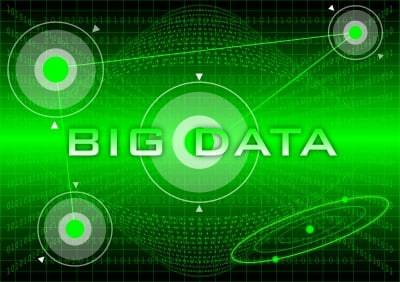Big Data is a technological revolution global in scope and, therefore, further defined by all that this implies. Thus, the term ends up being many things and nothing in particular, largely because its use has spread, The phenomenon keep expanding and affects practically all areas of life.
Like so many other buzzwords, it ends up being used in such profusion that its meaning changes, enriching itself with nuances. At the same time, loses specificity when applied, opening the door to interpretations and new uses that are redefining it.
There is so much in your universe that inevitably your meanings multiply and the confusion increases, even though they all allude to new and enormous possibilities. Faced with this current confusion about the definition Big Data, let's see some of the main:
1. Original definition
Most definitions refer to Big Data as a definition applied to sets of big data characterized by the famous 3Vs of analyst Doug Lane, from the consulting firm Gartner: volume, speed and variety, that exceed the ability of common software to be captured, managed and processed. Since Laney coined it more than a decade ago, other V, as validity, veracity, value and visibility. A challenge for data management.
2. Big data as technology
As information and communication technology, Big Data is an ecosystem that does not stop growing. Specifically, Open source software such as Hadoop and NoSQL have been a technological milestone in data storage and management that is encompassed in the general term of Big Data, sometimes erroneously by including all kinds of technologies or tools of recent appearance. .
3. Big data as signals
Understand Big Data as a great business possibility that must be captured on the fly, with a business administration that transacts in advance of events. Extracting value from data means using it as signals to anticipate what is going to happen and take advantage of that information. in addition, this information can be used beyond the company, constituting a key instrument in many other areas, from health (prevention of an epidemic) to public administration, promoting sustainability or, as an example, urban planning.
4. Big Data as a Culture
The technological part of Big Data, Hadoop data management versus traditional storage systems, takes place in a given context, in a society in which its processes develop and people live. Simply, it is a cultural dimension that affects very different aspects of our environment, affecting the most everyday, lifestyles and own thinking. And, On one side, looks like a positive move, for another, an erosion of fundamental freedoms is feared.
5. Big Data as a knowledge revolution
If information is power, then Big Data is understood as a great flashlight that illuminates those data that were hidden, facilitating data analysis before limited technology. Carpet Aslett, of 451 Research, establishes Big Data in this same sense, opposing its light to those other "dark data". En palabras de Rick Smolan, autor de The Human Face of Big Data, “an extraordinary knowledge revolution operates almost invisible, through business, The academy, government, medical care and daily life”. Whether researchers previously used data to support or reject theories, now they turn to them for inspiration.
6. Big Data as a Metaphor
In the same book, Rick Smolan says big data is “helping the planet to have a nervous system, where humans are just another type of sensor”. A poetic metaphor that contains a deep meaning and that could end up being premonitory or, in any case, clearly allusive to the Internet of Things (IoT). Recall that Rijmenam stated that “the 90% of all the data that was created was created in the last two years. From now on, the amount of data in the world will double every two years”.
7. Big Data as a business
In conclusion, Big data is a wild card that has flourished in the business world, being able to describe any business possibility related to the data, whether or not they are related to new technologies. Maybe it's ignorance, or simply to get on the bandwagon of the brand new Big Data.
Related Post:
Photo credits: Photoexplorer / FreeDigitalPhotos.net







